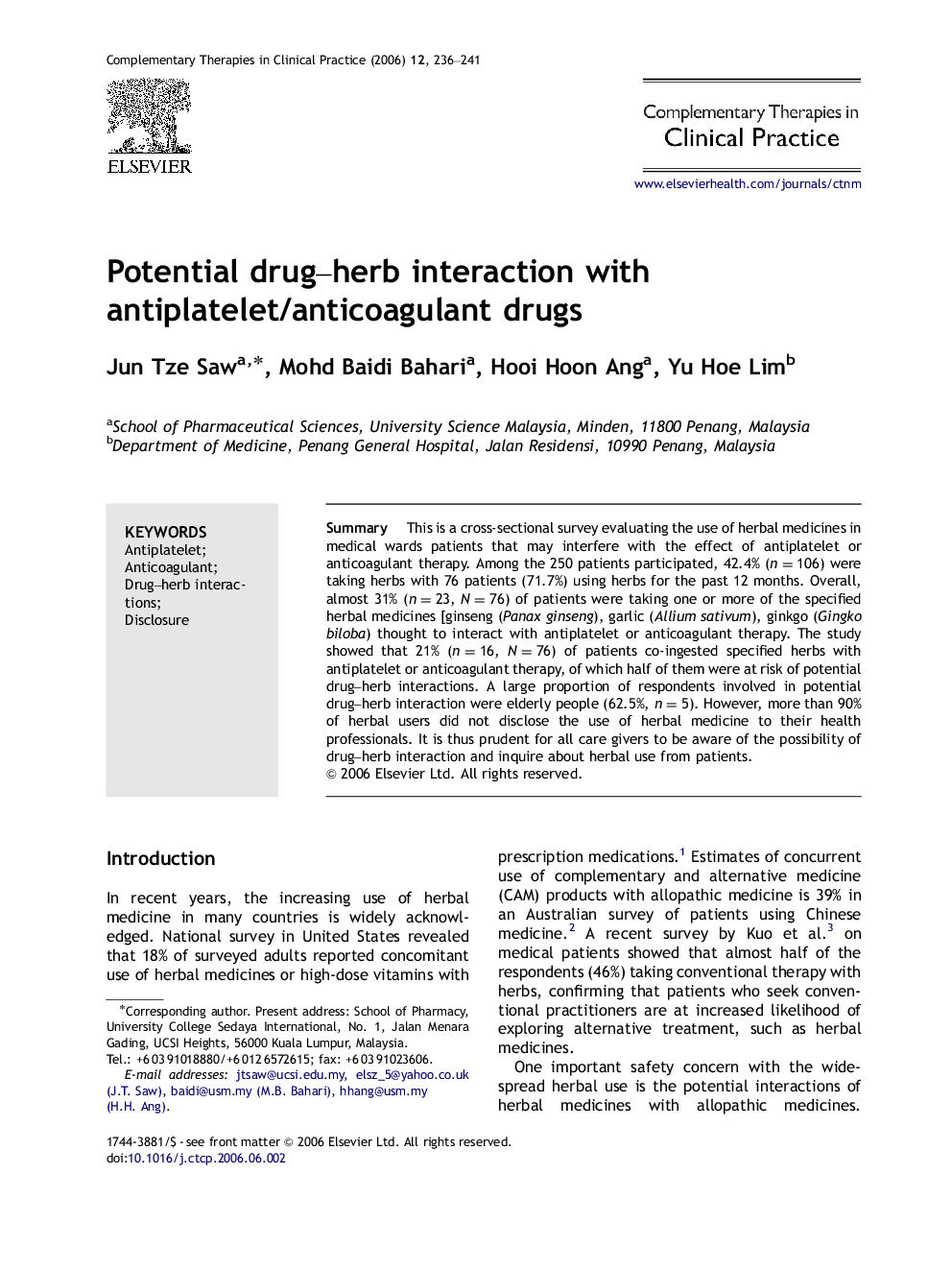| Article ID | Journal | Published Year | Pages | File Type |
|---|---|---|---|---|
| 2628707 | Complementary Therapies in Clinical Practice | 2006 | 6 Pages |
SummaryThis is a cross-sectional survey evaluating the use of herbal medicines in medical wards patients that may interfere with the effect of antiplatelet or anticoagulant therapy. Among the 250 patients participated, 42.4% (n=106n=106) were taking herbs with 76 patients (71.7%) using herbs for the past 12 months. Overall, almost 31% (n=23n=23, N=76N=76) of patients were taking one or more of the specified herbal medicines [ginseng (Panax ginseng), garlic (Allium sativum), ginkgo (Gingko biloba ) thought to interact with antiplatelet or anticoagulant therapy. The study showed that 21% (n=16n=16, N=76N=76) of patients co-ingested specified herbs with antiplatelet or anticoagulant therapy, of which half of them were at risk of potential drug–herb interactions. A large proportion of respondents involved in potential drug–herb interaction were elderly people (62.5%, n=5n=5). However, more than 90% of herbal users did not disclose the use of herbal medicine to their health professionals. It is thus prudent for all care givers to be aware of the possibility of drug–herb interaction and inquire about herbal use from patients.
